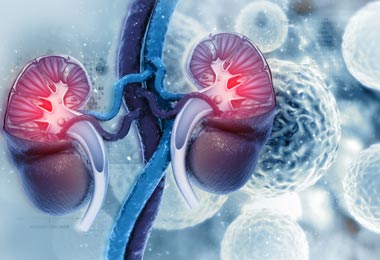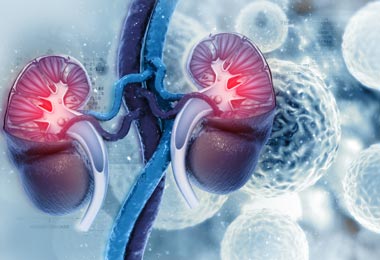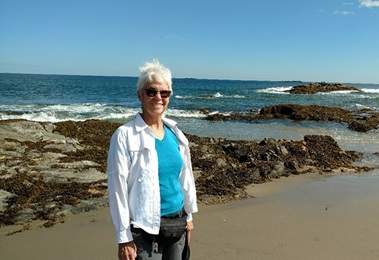Chronic Kidney Disease
What You Need to Know
You have two kidneys, located near the middle of your back, just below the rib cage. Each is about the size of your fist. Tiny structures called nephrons are inside each kidney and they filter the blood. There are about a million of them.
The kidneys are responsible for removing wastes, toxins and extra water from the body; balancing important salts and minerals in the blood; and releasing hormones to help control blood pressure, manage anemia and help maintain strong bones. The waste and extra water removed by the kidneys become urine. The urine flows through tubes called ureters. It goes to your bladder, which stores the urine until you go to the bathroom.
When the kidneys are damaged, they can't filter blood as they should. The result can be a build-up of wastes in your body, as well as other problems that can harm your health.
One in three American adults is at high risk for developing kidney disease today. Yet most aren’t able to identify the signs and symptoms. One in nine American adults has kidney disease and most don’t know it.
At first, kidney disease is silent. Symptoms often don’t appear until the kidneys are badly damaged. Many people don't have any symptoms until their kidney disease is advanced. Blood and urine tests are the only way to know if you have kidney disease.
What is chronic kidney disease?
Chronic kidney disease, sometimes called CKD, is an umbrella term for several conditions that affect the kidneys, but it generally means permanent — and usually progressive — damage to the kidneys caused by a variety of conditions.
Learn Your ABCs of Kidney Disease
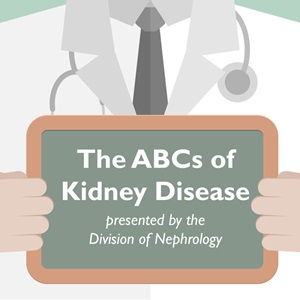
Johns Hopkins nephrologists Drs. Sumeska Thavarajah and Daphne Knicely offer a free educational class most months, from 5 – 6 p.m. at Johns Hopkins Bayview Medical Center. For more information, call 410-550-2820.
Causes
The leading cause of kidney failure is diabetes. High blood pressure is the second leading cause of kidney failure. Both diabetes and high blood pressure damage your kidneys overtime.
Heart disease and kidney disease are connected. If you have one, you are at risk for the other.
Age is also a risk factor for kidney disease, specifically, being over 60.
The main causes of chronic kidney disease in children are anatomical/structural abnormalities or inherited conditions, such as polycystic kidney disease. Conditions that cause damage to the kidneys’ filters, the glomeruli, can lead to chronic kidney disease.
Learn How to Lower Your Risk for Kidney Disease
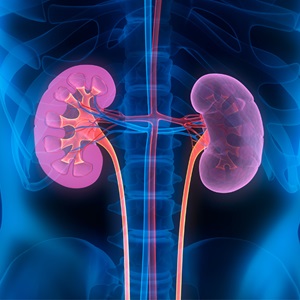
Did you know that your kidneys play an important role in keeping your body functioning properly? Nephrologist Daphne Knicely offers the top five jobs healthy kidneys perform.
Symptoms
- Changes in urination
Your urine may be foamy or bubbly; you may urinate more or less often; amounts may be greater or less than usual; the color may be darker or paler than usual; you may see blood in the urine; you may have difficulty urinating - Swelling
When your kidneys don’t work, excess fluid isn’t removed from your body. It can build up and cause swelling in the legs, ankles, feet, face, and/or hands. - Fatigue
The kidneys make a hormone called erythropoietin, or EPO, which tells your body to make oxygen-carrying red blood cells. If your kidneys are damaged, they make less EPO, which means fewer red blood cells are available to carry oxygen. This is called anemia, and itwhich can be treated. - Skin Rash/Itching
When the kidneys can’t remove wastes from the body, it builds up in your blood and can cause severe itching. - Metallic Taste in Mouth/Ammonia Breath
When waste builds up in the blood it is called uremia. This can make food taste different and cause bad breath. It is not uncommon to stop liking to eat meat, or to lose weight because you don't feel like eating. - Nausea and Vomiting
Uremia can also cause nausea and vomiting. - Shortness of Breath
Extra fluid in the body can build up in the lungs. This build up, combined with anemia, can result in shortness of breath. - Feeling Cold
Anemia can make the body feel cold even when in a warm room. - Dizziness and Trouble Concentrating
Anemia that is the result of kidney failure means that your brain is not getting enough oxygen, which can lead to memory problems, trouble with concentration, and dizziness.
Diagnosis
Two tests are commonly suggested to screen for CKD.
- Glomerular filtration rate (GFR): a common blood tests to see how well your kidneys are filtering.
- Urine albumin: checks for a protein that passes into urine when the kidneys are damaged.
In addition, serum creatinine is a blood test that is used to estimate how well the kidneys are filtering waste out of the blood.
Treatment
Treatment may include medicines to lower blood pressure, control blood glucose, and lower blood cholesterol. CKD can get worse over time. CKD may lead to kidney failure. The only treatment options for kidney failure are dialysis or a kidney transplantation.
A Startling Diagnosis

During her sophomore year of college, Kaitlyn began feeling fatigued and experiencing dizzy spells. Diagnosed with chronic kidney disease, she underwent a lifesaving transplant procedure.

